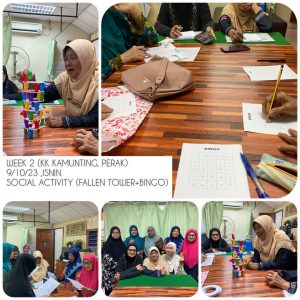
As Malaysia sees a steady rise in its elderly population, the nation is on the brink of a significant transformation. The demographic shift is not merely a statistic; it signals a transition into an ageing country, with profound implications for the well-being of its senior citizens.
Ageing, often synonymous with a decline in physical, cognitive, and psychosocial functions, can lead to many challenges. Issues such as sarcopenia, arthritis, and cardio-pulmonary limitations confine many older individuals to their homes, creating a ripple effect of reduced physical and social activities. The resultant social isolation, loneliness, and depression cast a shadow over the golden years.


Adding complexity to this scenario is the phenomenon of ‘empty nest syndrome,‘ a poignant consequence of the younger generation’s migration in pursuit of better opportunities abroad. As familial ties stretch thin, the elderly find themselves grappling with health challenges without the comforting support of their children and extended family.
Recognizing the urgency of addressing these issues, the Faculty of Health Sciences (FSK) at University Teknologi MARA, in collaboration with the Ministry of Health Malaysia (MOH) and the World Health Organization (WHO), has taken a pioneering step. Associate Professor Dr. Akehsan Dahan and Dr. Syamsul Anwar Sultan Ibrahim from FSK, UiTM and Dr. Hanisha Haidhir, Pn Nora Hamid, and YM Tengku Asri Tengku Makhtar from Ministry of Health Malaysia have come together to design a ground-breaking program known as MyHOeME.
The genesis of MyHOeME lies in a comprehensive approach. A scoping review, complemented by focus group interviews featuring older persons, occupational therapists, and geriatric specialists, laid the foundation. The outcome was a meticulously crafted program, validated through a rigorous content validity process. To ensure widespread success, a detailed manual has been provided to facilitators, making it a replicable model for enhancing the lives of the elderly.
Crucially, the initiative received financial support from the World Health Organization (WHO), elevating MyHOeME to a globally recognized standard. This backing not only underscores the importance of the program but also demonstrates a collective commitment to improving the lives of the elderly.
Occupational therapists across Malaysia have embraced the MyHOeME initiative, conducting activities that go beyond mere routines. The program has proven effective in enhancing health and well-being, a fact substantiated by measurements using the SF-12 tool. Yet, MyHOeME isn’t just about physical health; it also fosters social connections. Engaging with caregivers, family members, and the broader community, it acts as a bridge to combat the isolation that often accompanies ageing.
Moreover, MyHOeME aligns seamlessly with Sustainable Development Goal 3 (SDG3), the National Policy on Older Persons in Malaysia, and the Active Ageing Policy of the World Health Organization’s (WHO) guidelines.
The success of MyHOeME is a testament to the power of collaboration and innovation in addressing complex societal challenges. It represents a holistic approach to elderly care that goes beyond the clinical realm, recognizing the importance of integrating daily activities into the broader fabric of life.
As Malaysia embraces MyHOeME as a standard intervention, occupational therapists are set to become catalysts for change, promoting health and well-being among the elderly nationwide. The ripple effect of this initiative promises not only to transform the lives of individual older persons but also to redefine the narrative around ageing in Malaysia. MyHOeME is more than a program; it’s a beacon of hope, illuminating a path towards a brighter, more fulfilling future for the nation’s senior citizens.
